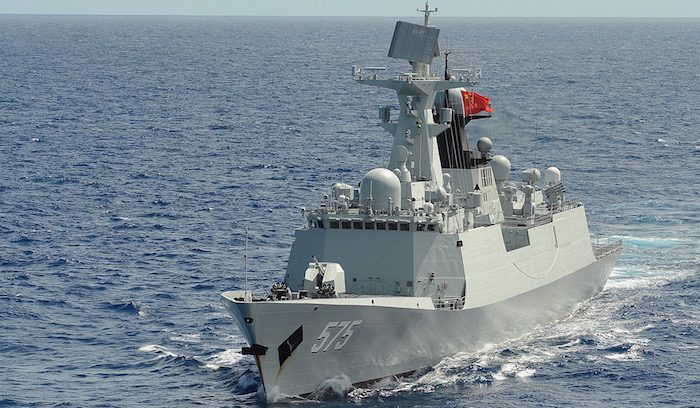
The announcement by the country’s Chief Justice Zhou Qiang during the annual National People’s Congress on 14th March that China was about to establish what was euphemistically called a ‘maritime judicial centre’ largely went unnoticed in the international press. Reuters, Associated Press and others carried brief reports, but it was hardly headline material. The low-key way in which the declaration was made, and the equally quiet way in which it was received, was indicative of a high level of skepticism. We were dealing with symbolic moves, not practically meaningful ones, was perhaps the message that got conveyed. And everyone, including the Chinese, seems to know this.
Part of this might be down to the fact that as yet, this judicial centre has no location, no personnel, no clearly stated role, and no leader. It exists nominally on paper. Zhou Qiang’s statement was clear enough: China was a ‘powerful maritime country’, and powerful maritime countries need entities like this. He went on to state that many maritime disputes, some brought by international partners, are heard in Chinese courts every year. But they don’t deal with such fundamental issues as whether an island, promontory, or feature belongs to one country or another. They handle more routine disputes about the ownership of vessels or the rights to specific sea-bound property.
The simple fact is that none of the disputants in the South China Seas at the moment are likely to take their pleas to China’s new maritime judicial centre. The Philippines has already pushed its own claims at the UN Permanent Court of Arbitration. However, China has made clear that it will not abide by any rulings issued at The Hague, and maintains its current line that practically, the whole of the maritime zone is its sovereign territory. If it doesn’t recognize the international body with most legitimacy for ruling on these issues, then why would anyone else recognize its own unilaterally established body?
Then, there is the slight issue of precedent and trust. Would Vietnam or Malaysia, with any level of confidence, take their disputes to a centre in China where it is universally acknowledged that the final say on major issues still lies with the Communist Party? Of course, since 1978, China has made great progress on building up a legal system, almost from scratch. In 2014, it devoted a whole annual plenum communiqué to the issue of constructing better rule by law. But judges are still appointed by the Party, not the state – and have to ultimately answer to it – and the Party, overtly or covertly, has a huge role in decision-making regarding sensitive cases. Also, for the Party, there are issues more incendiary and important than the status of its maritime territorial claims. Why would old foes in the region like Vietnam, then, confer legitimacy on such a centre by going and pleading there?
China is simply pushing forward another player in an already crowded field. It is asserting that it too has structures, organizations, and processes that parallel those of the outside world, and therefore cannot be excluded. Next time, therefore, when someone demands that some aspect of a maritime issue needs to be taken to arbitration for judgment, China can helpfully point to its own centre. It will serve, at the very least, to complicate things in China’s favour, because, of course, it can state with innocence that it does not intend to interfere with the work of the centre, without starkly admitting that just by being in China, it will have huge restrains and controls placed on its likely field of operations and freedom.
The maritime judicial centre can be seen as part of a broader move by China to no longer passively accept the international order to rule making and judging, but to put its own version of things forward. The Asia Infrastructure Investment Bank is the most visible so far in this respect, besides other examples. But while in the economic realm, the region and the world are willing to cede China some space and work with its proposed new structures, in the security realm there is profound skepticism. That is why the centre is unlikely to exist as anything more than a political gesture, and why, if it does get staff, a brand new grand building, and nice looking courts, they are unlikely to be that busy. Their main visitors may well be delegations, domestic and international, flocking to observe China’s declaration of its flexibility and openness. Most may, however, be unconvinced that this centre will make any difference at all to the ultimate resolution of the South China Sea deadlock.
Further Reading on E-International Relations
- The Implications of China’s Growing Military Strength on the Global Maritime Security Order
- Is China Under-Exploiting One Legal Avenue in the South China Sea?
- Contesting American Power: Beijing’s Challenge in South China Sea Disputes
- Continuity and Change: China’s Assertiveness in the South China Sea
- The Taiwan Factor in the Clarification of China’s U-shaped Line
- New Book – Asian Territorial and Maritime Disputes: A Critical Introduction